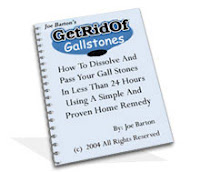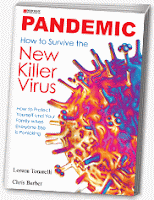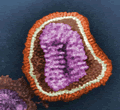Preventing colds & flu: natural remedies that boost your immunity
Natural remedies that boost your immunity.
Sniffles & sneezes may figure prominently in winter time humor, but they are hardly joking matters for the millions of Americans who experience an average of 2 to 4 colds each year. We spend billions of dollars annually on over-the-counter drugs with promises of quick relief from cold symptoms. Most experts agree, however, these remedies not only do not help but often make matters worse. As witty sufferers are fond of pointing out: A cold untreated lasts 7 miserable days, treated it goes away promptly in just one week. Colds tend to disappear without a trace, after running their course from stuffy head to drippy nose.
Flu, in contrast, is nothing to sneeze or laugh at. Unlike colds, flu comes on rapidly, with the telltale arrival of symptoms such as muscular aches & pains, chills & fevers, sore throats & dry coughs, headache, exhaustion & depression. More severe than colds, flu can cause death in the elderly & chronically ill, but typically, sufferers feel wiped out for a few days & tired for a few weeks.
Though not the same illness, both colds & flu are caused by viruses. And for those who think a "cure for the common cold" or a fail-safe flu shot is on the scientific horizon, some bad news: There are hundreds of distinct cold & flu viruses out there. Unfortunately, these "bugs" differ from one another sufficiently - and mutate so quickly - that no medical "magic bullets" are likely.
Because science is unlikely to keep you free of colds & flu, your best defense is to boost your immune system so it is strong enough to keep bugs at bay. With a prevention strategy that combines diet, supplements & lifestyle management, you may make it through the winter with nary a crumpled tissue. And if you're unlucky enough to get sick despite your hard work, we've rounded up some natural therapies to see you through.
ANTIMICROBIAL EATS
Why some people get sick with colds & flu repeatedly & others rarely, is a question scientists are investigating. One of the possible answers is that what you eat (or don't eat) may help you stave off colds & flu or get over them more quickly.
In the controversial arena of cold & flu prevention, one food's value is not in dispute - garlic. Garlic has been shown to kill several types of bacteria & viruses. It also boosts immunity. Indeed, garlic possesses such potent antimicrobial properties that John Long, Ph.D., professor of microbiology at Brigham Young University in Provo, Utah concludes if you eat enough soon enough you might not get the cold or flu you feel coming on.
If you've maxed out on garlic pasta & broccoli with garlic sauce, Michael Janson, M.D., president of the American Preventive Medical Association in Great Falls, Va. and author of the book, The Vitornin Revolution in Health Care (Arcadia Press, 1996) says the most potent garlic preparations on the market are the "deodorized forms" (not "odorless"), which contain the equivalent of many cloves of garlic in each pill. Deodorized garlic powder doesn't leave you with telltale "garlic breath" but contains the active allelic sulfide compounds. It is available in 350 to 500 milligram (mg.) capsules that Janson recommends twice per day.
While garlic can help prevent a bout of cold or flu, once you're smitten, a speedy recovery may depend not only on what you're eating but on how much. Remember the old saying, "feed a cold & starve a fever," attributed to the father of Western medicine, Hippocrates? Well, it turns out what he really advised was: "If you feed a cold, you will have to starve a fever," which implies that eating regular fare will not help that cold or flu & may even make matters worse. Hippocrates reasoning: A body busy with digestion might have less energy for fighting off germs. Many alternative physicians subscribe to this reasoning & recommend at the first sign of a cold or flu, you go on a modified fast, limiting the diet to diluted fruit or vegetable juices, potassium broths, garlic or miso soup plus lots of herb tea & water.
Conventional doctors & the editors of the Tufts University Diet & Nutrition Letter disagree with practitioners of alternative medicine on this matter. They say, whether you have a cold or flu, and particularly when you have a fever, starving an illness is a bad idea because the body needs adequate calories to fight back against the proliferating invader germs. Martin Milner, N.D., a naturopath on the faculty of the National College of Naturopathic Medicine faculty in Portland, Ore., replies to this theory: "I've watched it both ways, and I would definitely recommend eating lightly. At the very minimum, stay away from protein & fat-rich entrees, sweets & dairy products," which Milner believes add to a cold's congestion.
"C" IS FOR "COLD"
By far the most popular cold & flu preventive is the ubiquitous vitamin C. The untiring efforts of the late Linus Pauling, Ph.D., the 2-time Nobel laureate whose persistent promotion of the benefits of vitamin C (ascorbic acid) supplements led to what is now a voluminous research literature. Pauling demonstrated vitamin C's wide range of useful effects: as a potent antioxidant protecting against free radical damage; in reducing wrinkling & sagging of skin and in decreasing chances of getting cataracts as we age; by boosting interferon (a natural antiviral substance) & antibody levels in the body & maintaining a strong immune system.












